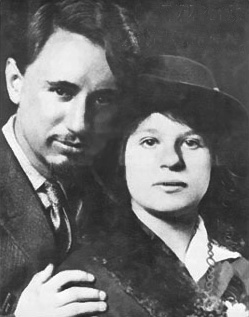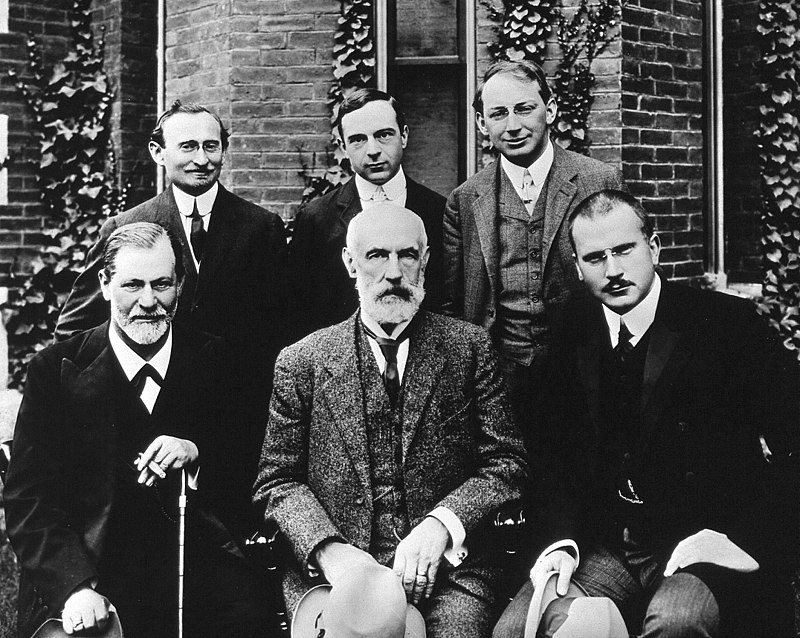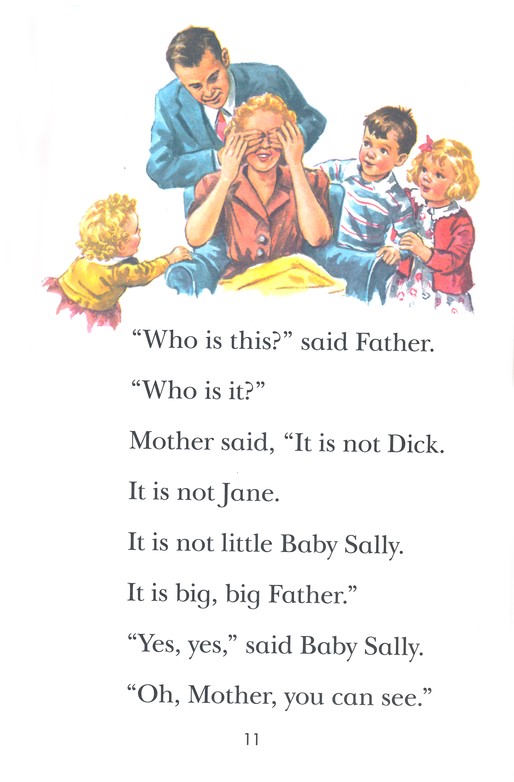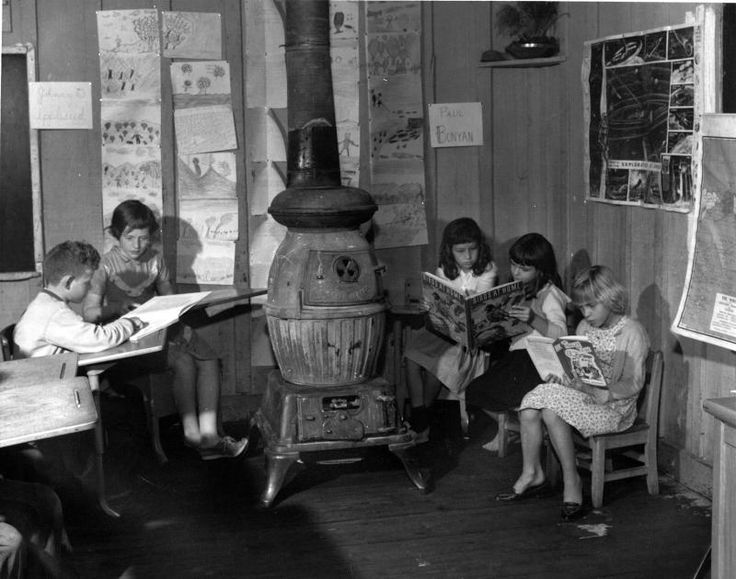College graduates today have been denied, by design, a basic liberal-arts education that was freely available to many 1-room schoolhouse, elementary students prior to the imposition of universal forced schooling in the period 1880-1920. It was a result of planned, deliberate intellectual caponization ($25 word for neutering roosters) which long preceded their high school graduation. A vast store of evidence for this assertion, unknown to the general public, is in freely available authors in a tradition of “studies of Deliberate Dumbing Down K-12”:
- Rudolph Flesch (Why Johnny Can’t Read), noting how whole-word/look-say reading pedagogy undermines the educational wellbeing of K-3 grade students.
- Samuel Blumenfeld (Crimes of the Educators, free PDF), noting how whole-word/look-say is associated with the vast expansion of dyslexia.
- John Taylor Gatto (Underground History of American Education, free PDF), a 30-year teaching veteran highly accomplished at evading, in his students’ interest, university teaching department-dictated, systematic anti-intellectual conditioning; he got to the root of a plan of immensely extensive time duration, to undermine the wellbeing of workers’ children in the interests of the late 19th century Titans of Wall St.
- Paolo Lioni (The Leipzig Connection, free PDF), details the connection between 19th century German behavioral psychology and the institutional establishment of American schooling 1880-1920.
- Charlotte Thomson Iserbyt (The Deliberate Dumbing Down of America, free PDF), a descendant of Yale Skull & Bones men, delved into the federal consolidation of rigid curriculum controls 1950-2020;
- continued now, in ongoing research, by John Klyczek (School World Order: The Technocratic Globalization of Corporatized Education).
Along with lightweight DDD (deliberate dumbing down) raves by Bruce Deitrick Price, there is additional corroboration from Georgetown professor Carroll Quigley, the author of the extremely candid Tragedy and Hope–he didn’t necessarily disagree with the covert methods of the master controllers, he just wanted to publicize them–, Antony Sutton (whistleblower on Wall St. support for the Bolshevik Revolution and the Chinese Communist Long March, ejected from Stanford’s Hoover Institution, died alone, penniless, his notes thrown out), and continued by serious studies of the current world order by Patrick Wood (Technocracy Rising: The Trojan Horse Of Global Transformation).
.
The issue of deliberate dumbing down (DDD), of unimaginably vast scope, centers on the confidential history, never taught in any schools or colleges, that contrasts the rigidly controlled, standard anti-intellectual conditioning children receive today in public schools, with the extreme opposite, self-directed, radical freedom which prevailed in America prior to the railroads (1840).
.
America from the Colonial/Revolutionary period, until the mid-19th century, was an outpost of personal independence, granted immunity by geographical isolation, from the restrictive model of Europe’s old-world, highly stratified class system. For instance, it was illegal in 19th century England to teach to lower class children, what Mr. Gatto termed “the active literacies” (writing and public speaking–William Cobbett was a lower class intellectual who criticized secular-saint, William Wilberforce for anti-slavery hypocrisy all the while the Irish, with their wrong religion, were starved in the midst of bumper agricultural exports to England, and the English lower classes were kept at 18 hour work days “to keep them out of trouble”).
.
Concurrent with the liberal Protestant biblical studies (“Historical-Critical Method”) of Adolf von Harnack in the late 19th century which “proved” that biblical accounts of miracles were “fantasies”, agnostic or atheist northern German philosophers were instrumental in enlarging on the rationalist foundation of the French Enlightenment until the late 19th century rise of the Fabian Socialist Society (symbol: a wolf in sheep’s clothing) espoused by the high architects of compulsory, universal, dumbed-down schooling. In contrast with the 99% of humanity which has believed in some sort of God, “when people stop believing in God, they don’t believe nothing, they’ll believe anything”.
.
“There can’t be a God, nor any Heaven”, (the outlook that “proves one is a ‘scientist’ “), therefore, let’s “create” heaven on earth, “eat, drink and be merry, for tomorrow we die”, (never to be resurrected into any eternal paradise), continually “improving” humanity, reinventing ourselves, on Darwin’s racist model of human “survival of the fittest”, leading to Hitler’s death factories and ultimately, today, to Bill Gates’ great purge of the “excess” of the majority of humanity.
.
A free people would never accept this. Therefore, starting in the mid-19th century, American children had to be wrested out of their family traditions and religions by secretly socialistic, anti-intellectual conditioning, subjecting them, in compulsory, universal, police-enforced, deliberately dumbed-down schooling, beyond the parents’ knowledge and understanding, to the endless drudgery of factory schooling, “at least keeping them off the streets and out of trouble”, precisely from the age when their brains should be furiously, delightfully absorbing everything about the wonderful, fascinating world.
.
Because solid learning from ancient times, the Trivium of Grammar (good literature), Logic (how, not what, to think) and Rhetoric (persuading others of the truth, and learning it yourself in greater depth in the process), protected students from exploitation by elite controllers of society, students had to be subjected to the fun-house world familiar in the school institution today.
.
This required laying the foundation for schooling, not on the basis of the classics of Western Civilization, the first among equals of nine great world civilizations–the free legacy of each citizen of the world–but upon planned disruption of them and opposition to them–the chimera of cultural appropriation as asserted by people with no appreciable education themselves–by vilification of the great and the good books (Dead White Males), and by an insidious control curriculum to thwart the acquisition of a solid academic foundation, to deliberately “crush the imagination” and stymie development of habits of independent thought immune to elite control.
.
Americans of the Colonial-Revolutionary period had a literacy rate in the high 90th percentile, in the absence of European social controls, virtually all Yankees, even indentured servants and slaves, the common people, were able to learn on their own, to understand and debate the sophisticated politics of Thos. Payne’s “Common Sense” (600,000 copies sold to a population of 2.3 million Revolutionary Colonialists), the Federalist and Anti-Federalist papers at a depth incomprehensible to today’s mis-educated college students, even to Poli-Sci graduate students.
.
This accorded with the Protestant ethic that people must be able to read their Bibles. Americans typically attained solid, basic literacy in a mere 40 hours of phonics, and practical numeracy in only 42 hours of arithmetic study (my grandfather, William Penny Keevers, a grocer, could add a running 3 column total in his head without a mechanical calculator), after which 13 year olds were expected to be pursuing self-employment and could enlarge their own education with such limited resources as were available to them, largely the Bible, Shakespeare and Plutarch’s Lives–not a bad foundation.
.
Ariel Durant started a life-long career at 13, collaborating with her husband Will Durant researching and writing best selling history. The Durants were awarded the Pulitzer Prize for General Nonfiction in 1968 for Rousseau and Revolution, the tenth volume of The Story of Civilization.
Self-employment and self-reliance were the default life path expectations for young people of the early 19th century, and were closely allied with productive, basic education of the type systematically denied to young people today.
.

Despite elaborate anxiety about “child labor”, there are numerous anecdotes about adult-acting 13 year olds like Thos. Edison (publisher of the Grand Trunk Railroad “Herald“), David Farragut (commanded captured British prize ship with prisoners at 12) and John Quincy Adams (the only member who spoke Russian in the early Revolutionary-period, U.S. diplomatic mission to the court of Saint Petersburg, active in diplomatic negotiations, at 14). Names of today’s communities with a continuing, strong ethos of self-employment are the North American Amish and the Spanish Catalan/Basque Mondragon Commune.

G. Stanley Hall with Freud and Jung
The rapid, forced industrialization of the American people from 1880-1920 required direct squelching of young people’s vigorous pursuit of their life path. Prussian-trained G. Stanley Hall applied the German-Romantic concept of sturm und drang, “storm and stress”, in his 1904 book Adolescence : its psychology and its relations to physiology, anthropology, sociology, sex, crime, religion and education to the labor-oversupply side of industrial capitalism’s chronic overproduction. Hall’s work introducing the novel category adolescence, resulted in the diversion of millions of young people away from the pursuit of a productive, self-directed livelihood, relegating them to the dead end of perpetual adolescence in deliberately dumbed down schools, a principle now to be extended indefinitely into old-age with Life-Long Learning as documented by John Klyczek.
.
Mr. Gatto related how by 1880, after the railroad facilitated carnage of the Civil War, Americans were being forcably moved off their own farms — where they did everything — and into millionaire owned factories, where they were just cogs in a machine. The titans of Wall St., Morgan, Carnegie, Astor, Vanderbilt and Rockefeller, regarded the Yankee tradition of auto-didactic, small farmers, mechanics/engineers, inventors and entrepreneurs, as a lethal competition threat to Financial Capitalists’ Wall St. accumulation of investment monies. The elites’ most efficient solution was to undermine this threat by strangling it in the cradle; the effort to control the intellectual uprising of the common people coalesced in the very foundation of universal, compulsory/police-enforced public schooling. The compulsory, universal public school system as we understand it, was never without built-in institutional handicapping of the vast majority of students.
.
This calculated, intellectual poisoning was formally predicated on the writings of a Prussian philosopher, Johann Fichte who had written “Addresses to the German Nation” (1808-1818) to the Prussian King, demanding universal, compulsory, deliberately dumbed-down schooling, laying fault for the Prussian defeat by the French in the 1806 Battle of Jena at the feet of Napoleon’s motto “every corporal with a field marshal’s baton in his rucksack”–in other words, amateur soldiers were formally directed to countermand orders from the elite, stratified professional officer class when local battlefield situations change. “The French let their commoners loose with too much independence, that’s why we lost to them” is what Fichte essentially told King Wilhelm. Failed Indiana New Harmony commune leader Robert Owen proposed deliberate dumbing down to the Prussian king around 1830.
.
.
Mr. Gatto charmingly terms the gist, “we have to crush children’s imagination”, to stop lower class people from running amok threatening destabilizing, inventive innovation, disrupting the carefully regulated, top-planned economy, by regimenting all children into universal, compulsory, Deliberately Dumbed-Down (DDD) schooling.
.
The rise of the Prussian-model dumbed-down schooling system produced generations of Germans who wouldn’t cause trouble when conscripted into the military or confined to the factory floor. The revamped Prussian social-economy eventually succeeded in beating the French, in 1870, leading to WW 1 & 2. Germany was the incubator of behavioral psychology for control of the masses, that taught that human beings were merely stimulus-responsive animals, a system that was spread in the late 19th century by German-trained, major university, psychology department chairmen to all major world countries, even China and Japan. (Paolo Lioni, “The Leipzig Connection”, free PDF.)
.
Horace Mann had 3 years to try deliberate dumbing down on the children of Boston in the 1840s, with whole-word/look-say vs phonics, but a general uproar ensued when literacy rates went down and it was temporarily halted. Dumbed-down early primary literacy conditioning went to Washington D.C. and NY, from 1880-1920 it became the law under sponsorship of the Titans of Wall St., with police enforcement. In 1917 there were riots in New York City against the 1907 Gary Indiana-model school curriculum.
.
THE THIRD ROCKEFELLER GENERATION WERE INTELLECTUAL CRIPPLES: The Worm Eateth Its Own Tail (Ouroboros), The Rich Eat Their Own: Fabian Society founding member John Dewey (icon: yellow flag, black wolf dressed in white sheepskin climbing a flagpole, maroon flag with black letters “F.S.” for Fabian Society) was funded for his experimental Lincoln School by John D. Rockefeller II. The Lincoln School was attended by Rockefeller’s 4 younger sons Nelson, Lauarance, David and Winthrop, some of the most powerful men in history who regulated the fates of millions of people.
.
With only the exception of the eldest son J.D. Rockefeller III, all four of the other Rockefeller third generation sons emerged from John Dewey’s “whole-word/look-say” Lincoln School as intellectual cripples unable to read a newspaper: they all had dyslexia. Dyslexia expert Dr. Samuel Orton informed university psychology department educationists in 1931 that whole-word/look-see causes deleterious brain changes in Kindergarten-Grade 3.
.
Prof. Anthony Esolen has contrasting sets of textbooks covering the crucial divide in purging curricula, the period 1920-1930. The Christian acceptance of the classics of Western Civilization had been the norm, going back into the 1 room school institution where, in contrast with the “professionalization” of the not highly regarded schoolmaster profession, amateur, elder students instructed younger ones and it was far from unknown for students below 6th grade to be pursuing academically advanced studies, in the little 1 room schoolhouse, that most college students today wouldn’t be able to manage. (School boards once local to communities, have been consolidated down from 75,000 to 15,000, the easier to ensure control by federal educrats.)
.
Calculated intellectual starvation at the very time children should be learning the most–contrast with John Senior’s 1,000 Good Books
By 1930, the classic-oriented curriculum with a phonics foundation, had been purged in exchange for Fun With Dick and Jane, whole-word/look-see, early primary literacy, handicapping indoctrination. By the time of Rudolph Flesch’s “Why Johnnie Can’t Read” 1955, no teachers had themselves been trained in classic literature, a prime goal of the atheist/agnostic/messianic secular-humanist founders of universal compulsory schooling from 1880-1920, the easier to ensure elite, top-down control of unruly lower masses in the interests of their tax-exempt non-profit foundation masters, the wealthy pathetic except for their inheritances who endowed the Carnegie, Ford and Rockefeller foundations.
.
(The Carnegie Foundation for World Peace and the Rockefeller Foundation funded pensions for “professional”, Normal School trained teachers at the turn of the 19th century…but at a price–if teachers wanted to avoid DDD and instead use initiative and good curricula to help students self-actualize, they would be got rid of.)
.
Dr. Seuss was recruited from advertising with a list of 234 words for children to visually memorize without phonic deciphering ability, explicitly on the model of Chinese ideograms which must be “read” as pictures; late in life Theodor Geisel, now a race criminal, expressed regret at the damage he had caused facilitating dyslexia through whole-word/look-see, early primary, anti-literacy conditioning. Students’ usual comment when they are confronted with a new word is “I can’t read that, I’ve never seen it before”.
.
They have no chance of discovering marvelous decoding power of unfamiliar words, of the phonetic base literacy, from the ancient Chaldean/Phoenician phonemic-symbolic, sound-symbol alphabet which underlies Hebrew, Greek, Latin, German, Cyrillic/Russian and most western alphabet systems, one of the greatest innovations in human intellectual history.
.
Mr. Gatto noted that the military tested recruits in WW2 at mid-90 percentile literacy rates, low-80 in Korea, high-60 percentile in Viet Nam, now the military has difficulty getting volunteers who can read a basic newspaper article.
.
WE breed water dogs not to bite game birds, we hood falcons to control them, when race horses run too fast we “handicap” them with heavy sandbags, and when students are in danger of independent learning so that they threaten to evade being conditioned into mindless consumers and docile employees of giant corporations, we subject them to “schooling”.
Mr. Gatto notes how the structure of schooling is designed to handicap children: timed bells, location controls, switching from 1 disconnected subject to another while not allowing project completion or drawing higher associations between subject areas, continual invasion of privacy and lack of personal time (extended by t.v. prior to the internet on cell-phones with the result that kids are cynical, cruel and disconnected from communities), teacher domineering of the students’ attention agenda, explicit deprivation of self-directed studies and adulthood-oriented learning activities, arbitrary judgment and punishment-reward system for making students dependent on teachers for WHAT to think, not HOW TO LEARN to think for one’s self on the Trivium model.
.
Students are taught to fear and envy the upper elites and despise the lower “dumb kids”. Students are age-segregated into ghettos of kids of similar age from whom they can’t receive any assistance discovering their own identities, which they used to get from adopting their parents’ livelihoods and culture as little adults. Disposable networks of limited purpose and duration fostered by schooling malfeasance have pushed out our once vital community involvement; school disrupts the free relationships in which people of all ages used to be able to freely associate with each other in in-depth personal involvement, people of different age categories offering involvement based on their life experience, young people giving the elderly their vigor, elderly people their wisdom and attention. Television pushed this out, now cell-phone based internet, in the future, field-generated connectivity to captivate all the senses so contact with ordinary reality can be continually monitored, regulated and modified by central controllers.
.
Childhood which Mr. Gatto declared from the pre-technolocratic past normally to be over by 7, or 11 at the latest, is being indefinitely extended beyond the 20s with “life long learning” conditioning. (I worked with a man who had been in college from just after high school until his mid-50s, who had taken 5 college degrees without attaining any noticeable life accomplishment, college was simply an unreal world in which there was no accountability or self-checking about the results of one’s activity, if there had been some harm to others caused by intellectual experiments upon real-life people, there was no accountability.)
.
From the beginning of the Prussian system as devised by behaviorsts like Pavlov’s teacher Wilhelm Wundt, students were socially conditioned to themselves insist on conformity in outlook and ideation, to be their own enforcers of ideological homogeneity, to socially punish rebellious individuality. This conformity drive continues with Queen Bees and Wannabes under the personality corrosion of social media experience designed by experts in fostering addiction.
.
As noted by Paolo Lioni (Leipzig Connection), the Prussian behaviorist system which sees humanity as only an aggregate of conditioned animal reactions, was spread by late 19th century psychology dept. chairmen. Pre-adolescent schooling in the Prussian model largely comprised, in effect, extended kindergarten, until age 13, when the students were formally set to fighting one another. In the Prussian model, one in 200 students, the high-elite Alphas in Aldous Huxley’s Brave New World, were taught to regulate the lower orders through a control hierarchy reposing on a second layer, a sub-elite of 6 in 200 students destined to become Beta administrators. Students by 2nd grade have a confidential federal identifier number indelibly setting their lifelong employment fate, universally accessible through data sharing by corporations, but unknown to parents.
.
John Klyczek (School World Order: The Technocratic Globalization of Corporatized Education), a community college adjunct professor, takes this system, now using portable Chromebooks to convey operant conditioning long established in student computer software, into the period 1960-2021, with much background from Charlotte Thomson Iserbyt (The Deliberate Dumbing Down of America).
.
Chromebooks are used as the vehicle for the conditioning methodology of B.F. Skinner, only to give students the bare minimum of training destining them for narrow job categories with severely limited upward mobility potential which they are assigned from early K-12. The cookie-cutter system is designed to produce legions of mindless consumers and compliant employees in gigantic corporations.
.
Mr. Gatto challenged B.F. Skinner’s method of “operant conditioning” treating human beings as lab rats. “I began to devise guerrilla exercises to allow as many of the kids I taught as possible the raw material people have always used to educate themselves: privacy, choice, freedom from surveillance, and as broad a range of situations and human associations as my limited power and resources could manage … to maneuver them into positions where they would have a chance to be their own teachers and to make themselves the major text of their own education.”
Skinner’s infant daughter Deborah, who wasn’t allowed to be touched, was the first experimental subject decades before computers confined your child’s mind in a portable Skinner box.

Fascinating self-education in the library corner of the One-Room Schoolhouse: “…the older students sometimes helping the younger with their lessons; the younger overhearing the lessons of their elders and learning them almost before they [the senior students] learned them…Two of the lessons stand out in my mind. Each took up a single sheet of paper. One of them was headed by a couple of verses of devotional poetry. Beneath the verses, the student had parsed every word in the verses, describing what part of speech it was, what grammatical form it bore (case, number, and gender for nouns and adjectives; person, number, tense, mood, and voice for verbs), what function it served in its clause, and what relation it bore to other words. The student’s performance was entirely correct. The other lesson was obviously an introductory one: the student wrote a noun in its singular and plural forms, in the nominative, genitive, dative, and accusative cases. This second student was clearly one of the younger children, as you could tell from an occasional roughness in his printing. The word in question was doulos (δοῦλος): Greek for “servant.” The children were evidently studying koine Greek, so as to be able to read the New Testament in the original tongue.” – Anthony Esolen, Out of the Ashes: The Rebuilding of American Culture. Recollections of the “Anne of Green Gables” One-Room Schoolhouse in Orwell Corner, Prince Edward Island by Nova Scotia, where there was no upper-limit on what children could learn.
Mr. Gatto notes how a vast economic system irrevocably committed to the current schooling tyranny has an unreleasable deathlock on our children’s future. The arbitrary, capricious schooling policies come down from a vertical pipeline with such ingrained anonymity that school administrators have not the slightest idea from where they originate. School unions, part of the centralized master planning from the turn of the 19th century, constantly diminish the interests of teachers as ever increasing numbers of non-instructional classified personnel, who exercise no direct educational function for students’ benefit, are continually hired, padding school-district employment rolls so that the expense per student continually rises with continually diminishing educational effectiveness, each new hire contributing union dues with no bargaining or interest advantage to the teachers who actually manage children, resulting in continually diminishing compensation. Mr. Gatto calls schooling the largest public works project in history, the largest business in America and probably in the world. Textbook companies, testing companies, schooling paraphernalia and school-lunch suppliers–to diminish the autonomy of families and make the isolated individual dependent on government–educationist universities and the federal government, a gobsmacking breadth of interlocking economic and political interest-sectors, together constitute an immovable, self-interested institutional block to improving the prospects for children. The corporate consumerist and human resources management stakes in schooling have the effect that if children were ever to be taught self-reliance, autonomy and free thinking–public schools and colleges are far more rigidly doctrinaire than parochial-religious schools–if young people were ever to attain independence from the constant requirement of being taught what to think and minute oversight of what they do at all times, in schooling and employment, there would be a terrible crash in the existing, dependency-based economy. Charlotte Thomson Iserbyt asserts that if your children are undergoing standardized testing, whether in public, private, charter schools or even home-schools, they are under the system’s control. The only escape would be to go off the grid, something that is largely impossible under a worldwide control hierarchy that has turned away from enforcing its mandates through conflict to finessing its dictates in the most subtle social control system in human history, by fostering addictive divertissments to keep perpetual children of all ages constantly distracted, the calculated addiction-fostering of the social-media interface now seamlessly integrated with Skinnerian operant conditioning for lifelong cognitive tyranny, delivered with “wrap-around”/”pipeline services” in The Community School.